
instructor_ex
Structured outputs for LLMs in Elixir
Stars: 391
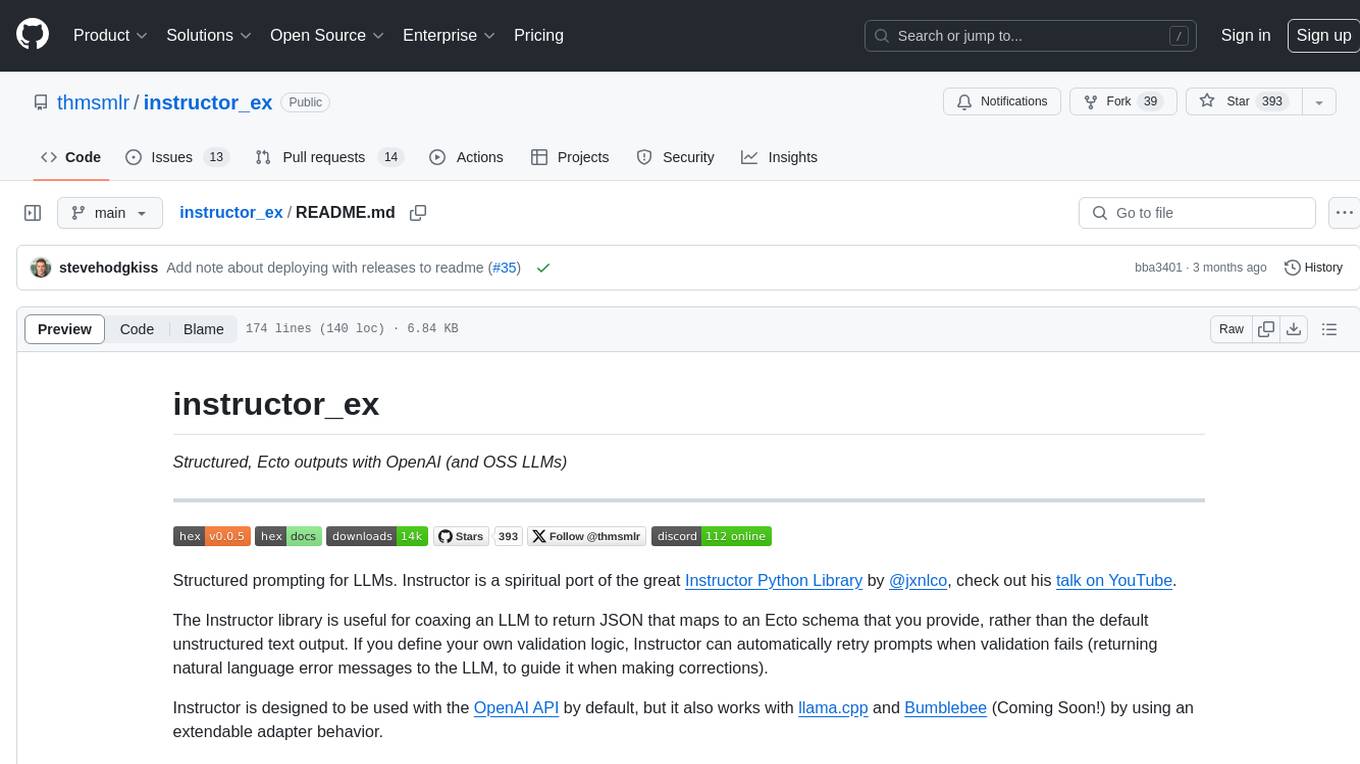
Instructor is a tool designed to structure outputs from OpenAI and other OSS LLMs by coaxing them to return JSON that maps to a provided Ecto schema. It allows for defining validation logic to guide LLMs in making corrections, and supports automatic retries. Instructor is primarily used with the OpenAI API but can be extended to work with other platforms. The tool simplifies usage by creating an ecto schema, defining a validation function, and making calls to chat_completion with instructions for the LLM. It also offers features like max_retries to fix validation errors iteratively.
README:
Structured, Ecto outputs with OpenAI (and OSS LLMs)
Structured prompting for LLMs. Instructor is a spiritual port of the great Instructor Python Library by @jxnlco, check out his talk on YouTube.
The Instructor library is useful for coaxing an LLM to return JSON that maps to an Ecto schema that you provide, rather than the default unstructured text output. If you define your own validation logic, Instructor can automatically retry prompts when validation fails (returning natural language error messages to the LLM, to guide it when making corrections).
Instructor is designed to be used with the OpenAI API by default, but it also works with llama.cpp and Bumblebee (Coming Soon!) by using an extendable adapter behavior.
At its simplest, usage is pretty straightforward:
- Create an ecto schema, with a
@docstring that explains the schema definition to the LLM. - Define a
validate_changeset/1function on the schema, and use theInstructor.Validatormacro in order for Instructor to know about it. - Make a call to
Instructor.chat_completion/1with an instruction for the LLM to execute.
You can use the max_retries parameter to automatically, iteratively go back and forth with the LLM to try fixing validation errorswhen they occur.
defmodule SpamPrediction do
use Ecto.Schema
use Instructor.Validator
@doc """
## Field Descriptions:
- class: Whether or not the email is spam.
- reason: A short, less than 10 word rationalization for the classification.
- score: A confidence score between 0.0 and 1.0 for the classification.
"""
@primary_key false
embedded_schema do
field(:class, Ecto.Enum, values: [:spam, :not_spam])
field(:reason, :string)
field(:score, :float)
end
@impl true
def validate_changeset(changeset) do
changeset
|> Ecto.Changeset.validate_number(:score,
greater_than_or_equal_to: 0.0,
less_than_or_equal_to: 1.0
)
end
end
is_spam? = fn text ->
Instructor.chat_completion(
model: "gpt-3.5-turbo",
response_model: SpamPrediction,
max_retries: 3,
messages: [
%{
role: "user",
content: """
Your purpose is to classify customer support emails as either spam or not.
This is for a clothing retail business.
They sell all types of clothing.
Classify the following email:
```
#{text}
```
"""
}
]
)
end
is_spam?.("Hello I am a Nigerian prince and I would like to send you money")
# => {:ok, %SpamPrediction{class: :spam, reason: "Nigerian prince email scam", score: 0.98}}Check out our Quickstart Guide for more code snippets that you can run locally (in Livebook). Or, to get a better idea of the thinking behind Instructor, read more about our Philosophy & Motivations.
Optionally, you can also customize the your llama.cpp calls (with defaults shown):
llamacpp
config :instructor, adapter: Instructor.Adapters.Llamacpp
config :instructor, :llamacpp,
chat_template: :mistral_instruct,
api_url: "http://localhost:8080/completion"In your mix.exs,
def deps do
[
{:instructor, "~> 0.0.5"}
]
endInstructorEx uses Code.fetch_docs/1 to fetch LLM instructions from the Ecto schema specified in response_model. If your project is deployed using releases, add the following configuration to mix.exs to prevent docs from being stripped from the release:
def project do
# ...
releases: [
myapp: [
strip_beams: [keep: ["Docs"]]
]
]
end- [ ] llamacpp adapter broken, needs to support openai input/output API
- [ ] GBNF should enforce required properties on objects, currently they're optional.
- [ ] GBNF limit the number of digits in number tokens -- small models can sometimes run off to infinit digits
- [ ] Add instructor tests against llamacpp interface using mocks, there's non-trivial logic in there
- [ ] Logging for Distillation / Finetuning
- [ ] Add a Bumblebee adapter
- [ ] Add llamacpp_ex adapter
- [ ] Support naked ecto types by auto-wrapping, not just maps of ecto types, do not wrap if we don't need to... Current codepaths are muddled
- [x] Support Streaming
- [ ] Verify schemaless support
{:array, %{name: :string}} - [ ] Support typespec style support for array streaming
[MySchema]
- [ ] Verify schemaless support
- [ ] Optional/Maybe types
- [ ] Add Livebook Tutorials, include in Hexdocs
- [x] Text Classification
- [ ] Self Critique
- [ ] Image Extracting Tables
- [ ] Moderation
- [x] Citations
- [ ] Knowledge Graph
- [ ] Entity Resolution
- [ ] Search Queries
- [ ] Query Decomposition
- [ ] Recursive Schemas
- [x] Table Extraction
- [x] Action Item and Dependency Mapping
- [ ] Multi-File Code Generation
- [ ] PII Data Sanitizatiommersed
- [x] Update hexdocs homepage to include example for tutorial
- [ ] Setup Github CI for testing, add badge to README
-
[ ] Why structured prompting?
Meditations on new HCI. Finally we have software that can understand text. f(text) -> text. This is great, as it gives us a new domain, but the range is still text. While we can use string interpolation to map Software 1.0 into f(text), the outputs are not interoperable with Software 1.0. Hence why UXs available to us are things like Chatbots as our users have to interpret the output.
Instructor, structure prompting, gives use f(text) -> ecto_schema. Schemas are the lingua franca of Software 1.0. With Instrutor we can now seamlessly move back and forth between Software 1.0 and Software 2.0.
Now we can maximally leverage AI...
-
[ ] From GPT-4 to zero-cost production - Distilation, local-llms, and the cost structure of AI.
... 😘
For Tasks:
Click tags to check more tools for each tasksFor Jobs:
Alternative AI tools for instructor_ex
Similar Open Source Tools

instructor_ex
Instructor is a tool designed to structure outputs from OpenAI and other OSS LLMs by coaxing them to return JSON that maps to a provided Ecto schema. It allows for defining validation logic to guide LLMs in making corrections, and supports automatic retries. Instructor is primarily used with the OpenAI API but can be extended to work with other platforms. The tool simplifies usage by creating an ecto schema, defining a validation function, and making calls to chat_completion with instructions for the LLM. It also offers features like max_retries to fix validation errors iteratively.
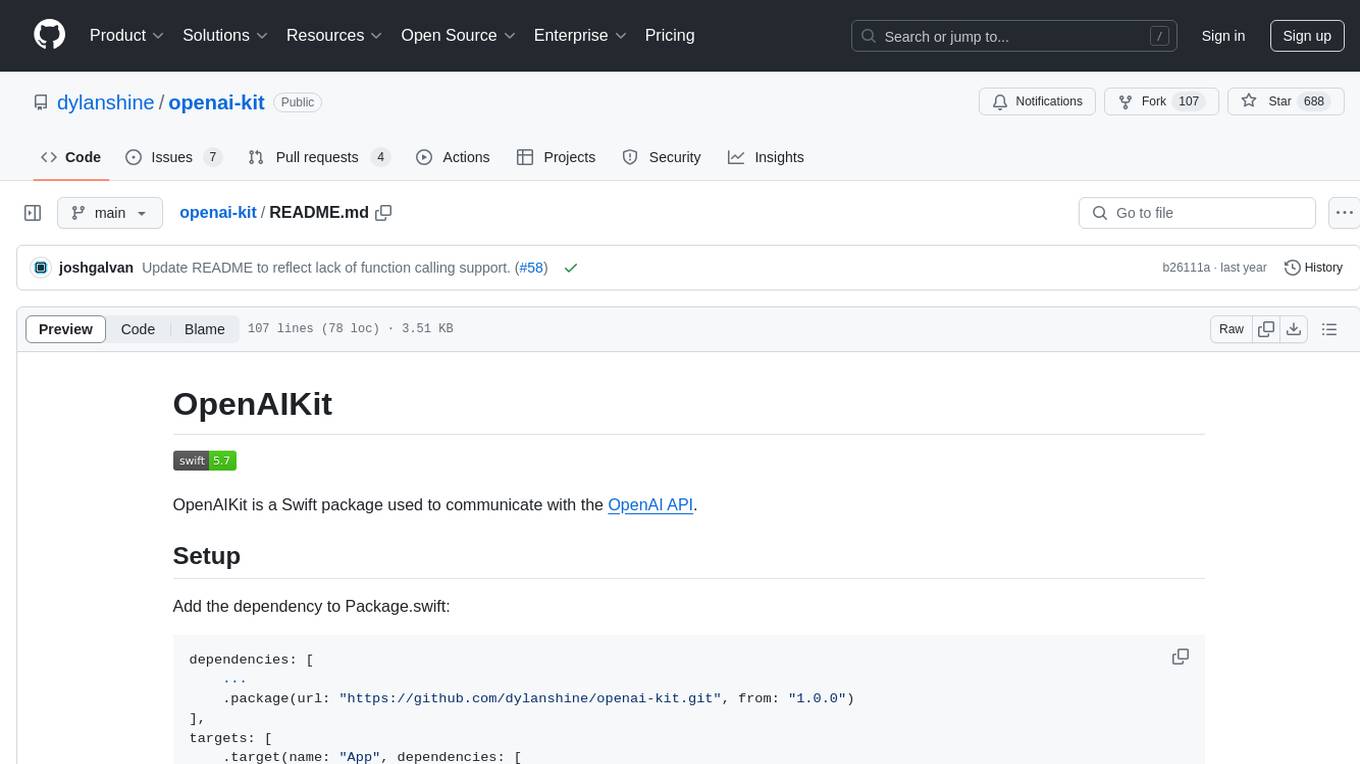
openai-kit
OpenAIKit is a Swift package designed to facilitate communication with the OpenAI API. It provides methods to interact with various OpenAI services such as chat, models, completions, edits, images, embeddings, files, moderations, and speech to text. The package encourages the use of environment variables to securely inject the OpenAI API key and organization details. It also offers error handling for API requests through the `OpenAIKit.APIErrorResponse`.
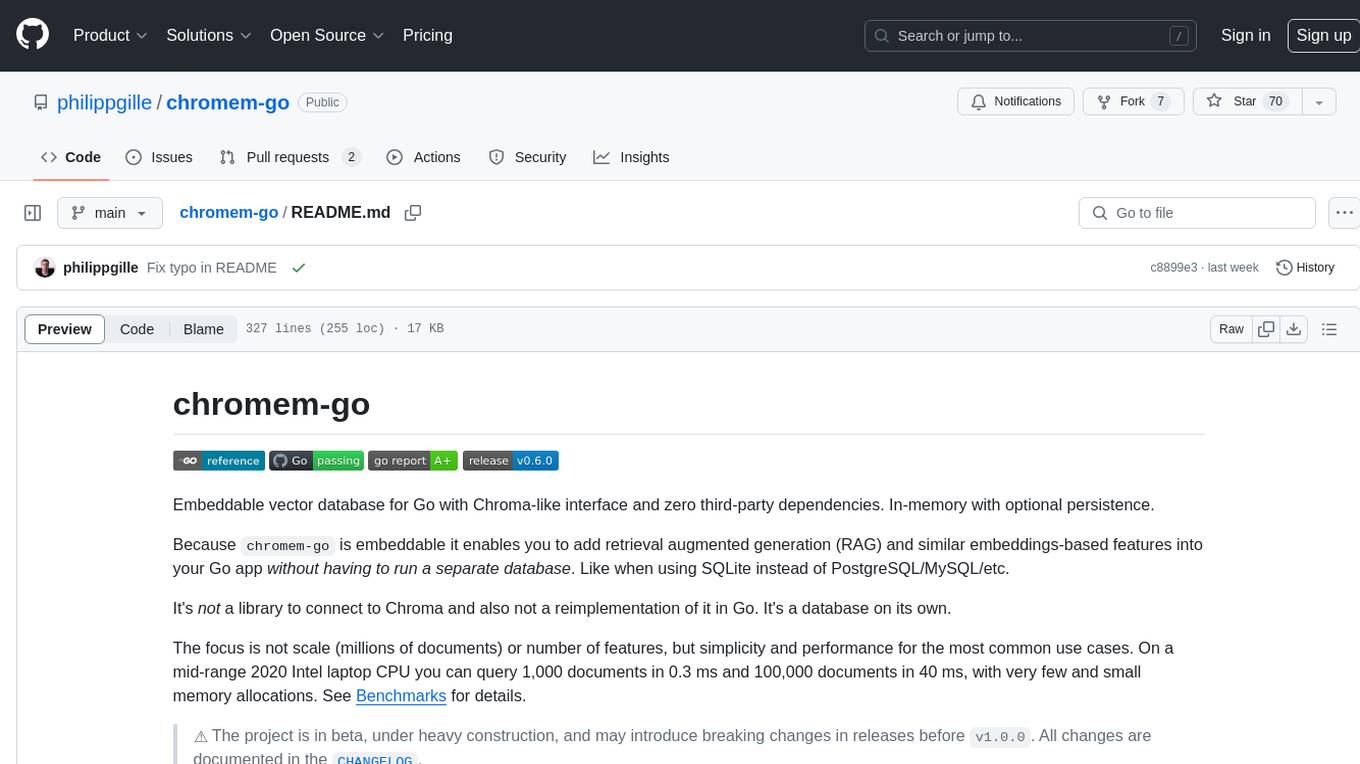
chromem-go
chromem-go is an embeddable vector database for Go with a Chroma-like interface and zero third-party dependencies. It enables retrieval augmented generation (RAG) and similar embeddings-based features in Go apps without the need for a separate database. The focus is on simplicity and performance for common use cases, allowing querying of documents with minimal memory allocations. The project is in beta and may introduce breaking changes before v1.0.0.
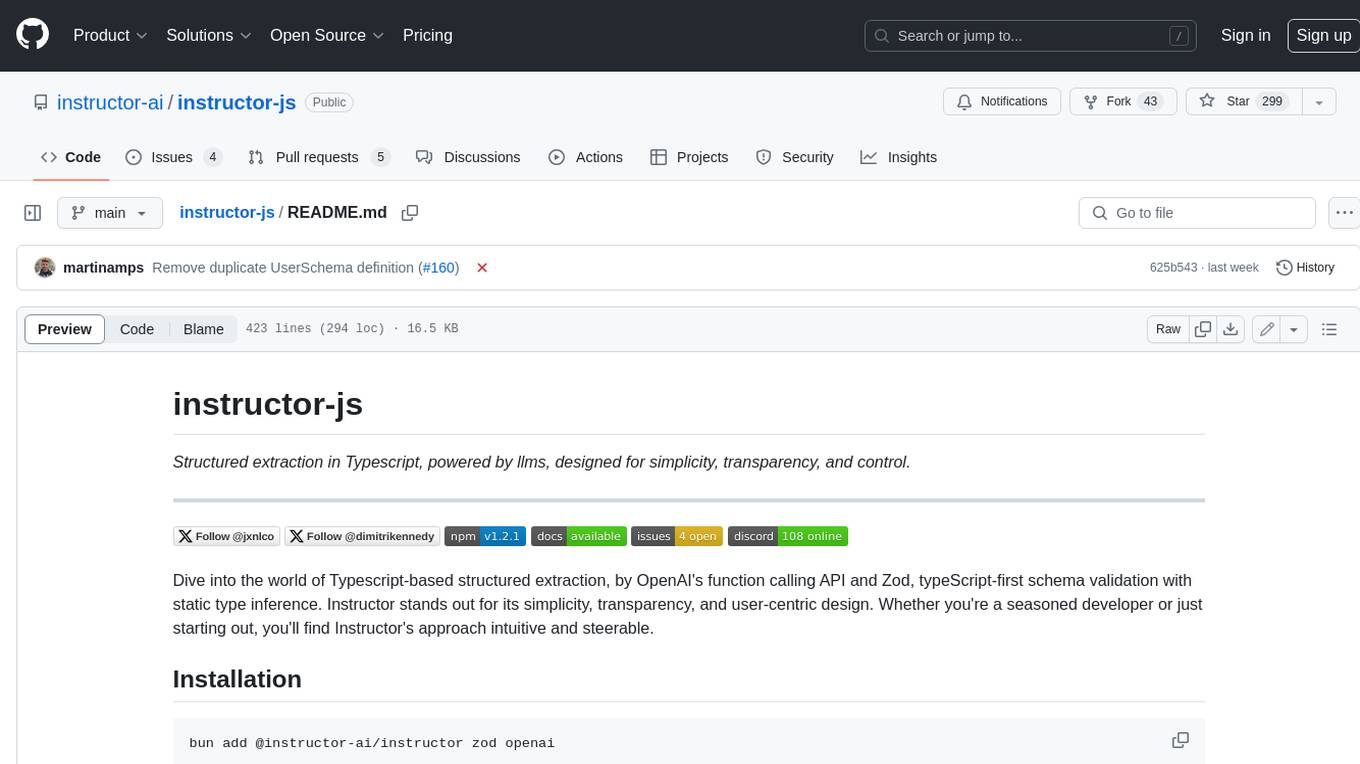
instructor-js
Instructor is a Typescript library for structured extraction in Typescript, powered by llms, designed for simplicity, transparency, and control. It stands out for its simplicity, transparency, and user-centric design. Whether you're a seasoned developer or just starting out, you'll find Instructor's approach intuitive and steerable.

Trace
Trace is a new AutoDiff-like tool for training AI systems end-to-end with general feedback. It generalizes the back-propagation algorithm by capturing and propagating an AI system's execution trace. Implemented as a PyTorch-like Python library, users can write Python code directly and use Trace primitives to optimize certain parts, similar to training neural networks.

langserve
LangServe helps developers deploy `LangChain` runnables and chains as a REST API. This library is integrated with FastAPI and uses pydantic for data validation. In addition, it provides a client that can be used to call into runnables deployed on a server. A JavaScript client is available in LangChain.js.
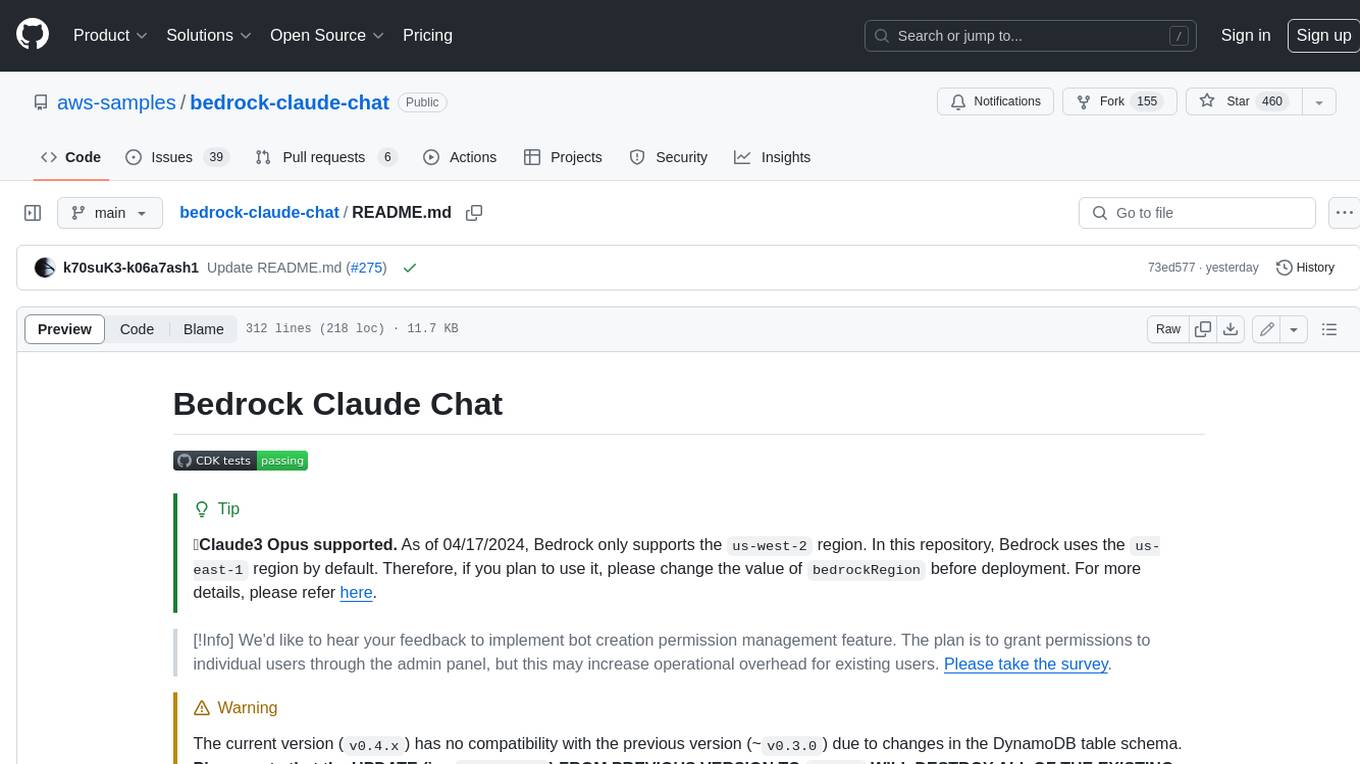
bedrock-claude-chat
This repository is a sample chatbot using the Anthropic company's LLM Claude, one of the foundational models provided by Amazon Bedrock for generative AI. It allows users to have basic conversations with the chatbot, personalize it with their own instructions and external knowledge, and analyze usage for each user/bot on the administrator dashboard. The chatbot supports various languages, including English, Japanese, Korean, Chinese, French, German, and Spanish. Deployment is straightforward and can be done via the command line or by using AWS CDK. The architecture is built on AWS managed services, eliminating the need for infrastructure management and ensuring scalability, reliability, and security.
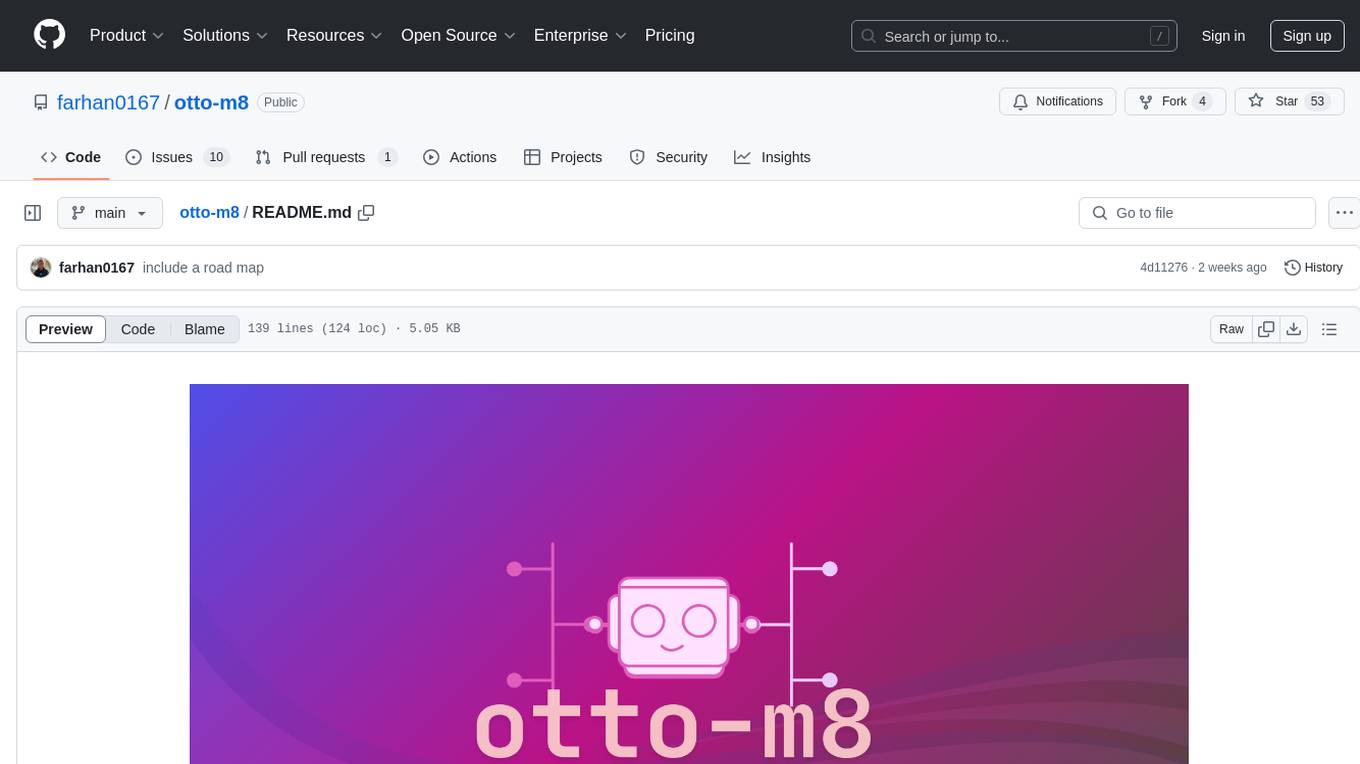
otto-m8
otto-m8 is a flowchart based automation platform designed to run deep learning workloads with minimal to no code. It provides a user-friendly interface to spin up a wide range of AI models, including traditional deep learning models and large language models. The tool deploys Docker containers of workflows as APIs for integration with existing workflows, building AI chatbots, or standalone applications. Otto-m8 operates on an Input, Process, Output paradigm, simplifying the process of running AI models into a flowchart-like UI.
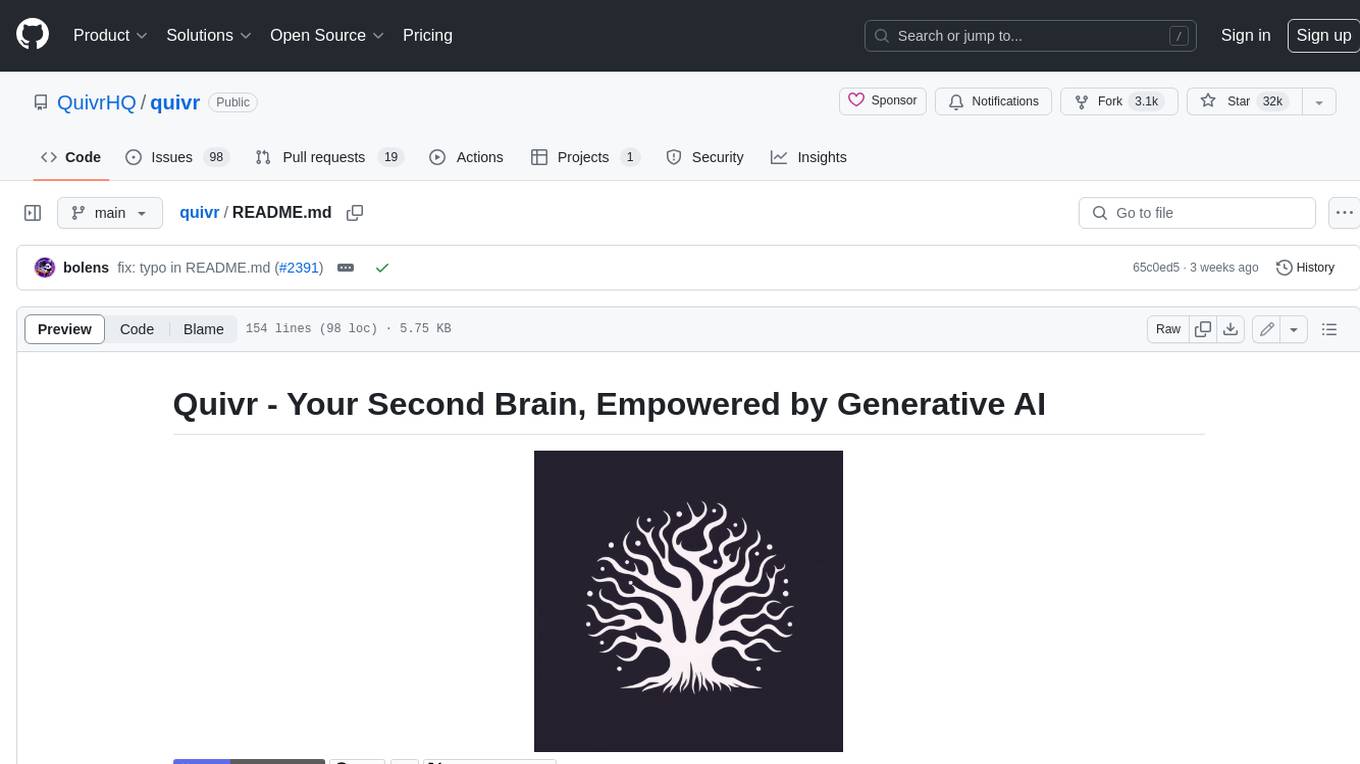
quivr
Quivr is a personal assistant powered by Generative AI, designed to be a second brain for users. It offers fast and efficient access to data, ensuring security and compatibility with various file formats. Quivr is open source and free to use, allowing users to share their brains publicly or keep them private. The marketplace feature enables users to share and utilize brains created by others, boosting productivity. Quivr's offline mode provides anytime, anywhere access to data. Key features include speed, security, OS compatibility, file compatibility, open source nature, public/private sharing options, a marketplace, and offline mode.
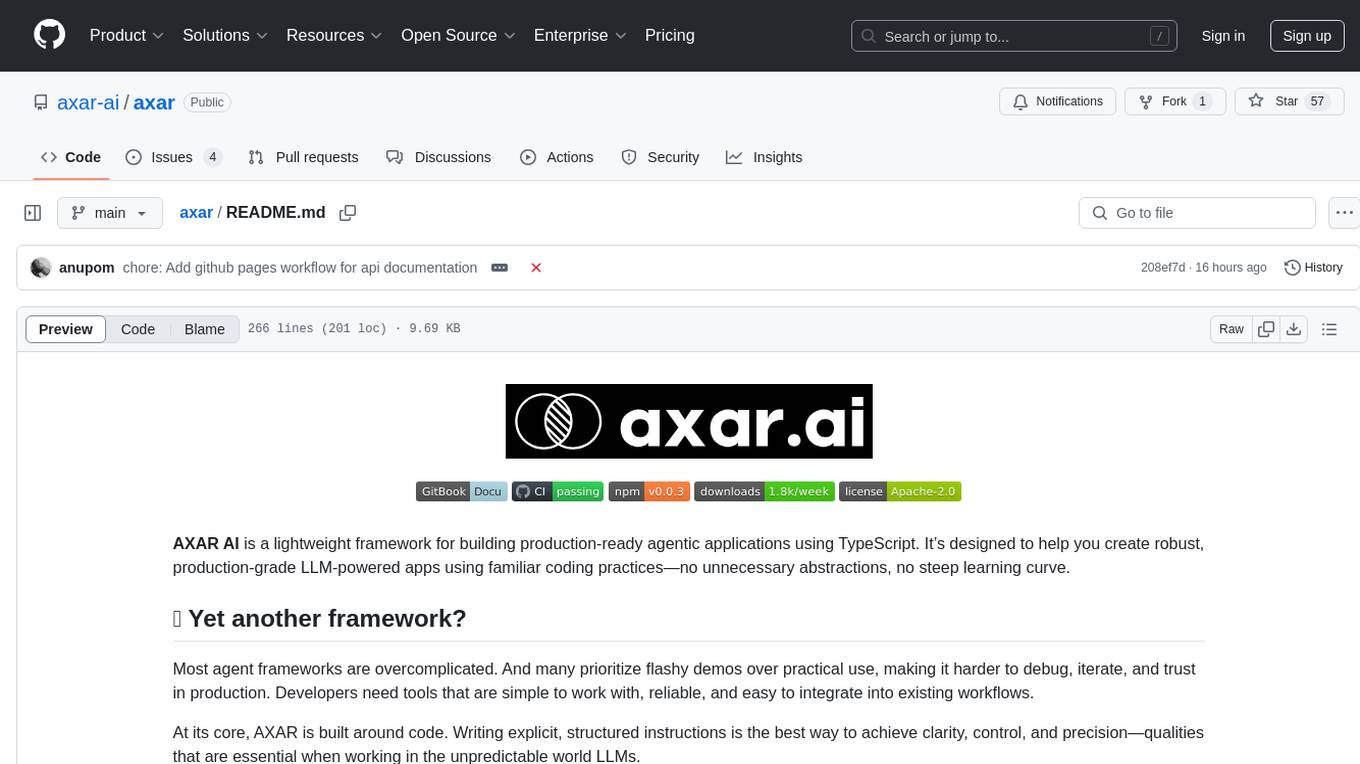
axar
AXAR AI is a lightweight framework designed for building production-ready agentic applications using TypeScript. It aims to simplify the process of creating robust, production-grade LLM-powered apps by focusing on familiar coding practices without unnecessary abstractions or steep learning curves. The framework provides structured, typed inputs and outputs, familiar and intuitive patterns like dependency injection and decorators, explicit control over agent behavior, real-time logging and monitoring tools, minimalistic design with little overhead, model agnostic compatibility with various AI models, and streamed outputs for fast and accurate results. AXAR AI is ideal for developers working on real-world AI applications who want a tool that gets out of the way and allows them to focus on shipping reliable software.

web-llm
WebLLM is a modular and customizable javascript package that directly brings language model chats directly onto web browsers with hardware acceleration. Everything runs inside the browser with no server support and is accelerated with WebGPU. WebLLM is fully compatible with OpenAI API. That is, you can use the same OpenAI API on any open source models locally, with functionalities including json-mode, function-calling, streaming, etc. We can bring a lot of fun opportunities to build AI assistants for everyone and enable privacy while enjoying GPU acceleration.
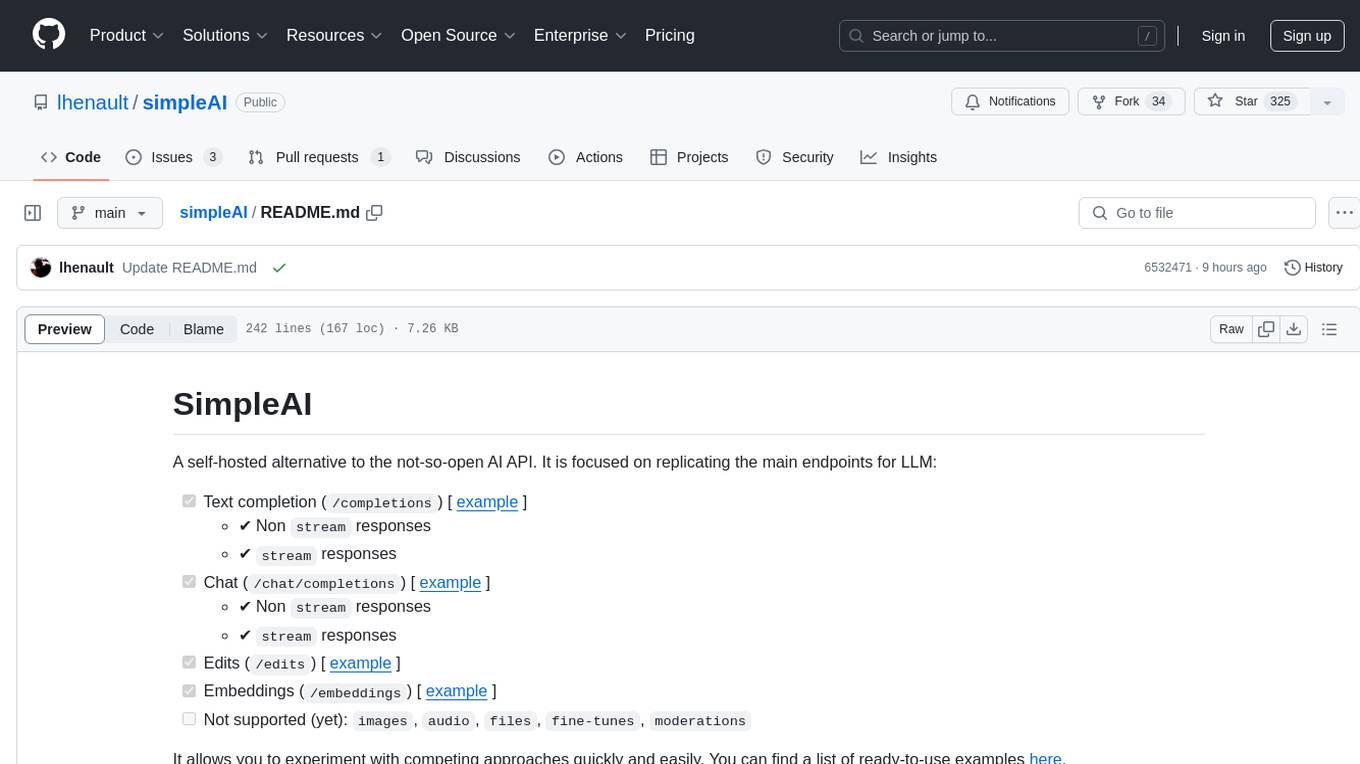
simpleAI
SimpleAI is a self-hosted alternative to the not-so-open AI API, focused on replicating main endpoints for LLM such as text completion, chat, edits, and embeddings. It allows quick experimentation with different models, creating benchmarks, and handling specific use cases without relying on external services. Users can integrate and declare models through gRPC, query endpoints using Swagger UI or API, and resolve common issues like CORS with FastAPI middleware. The project is open for contributions and welcomes PRs, issues, documentation, and more.
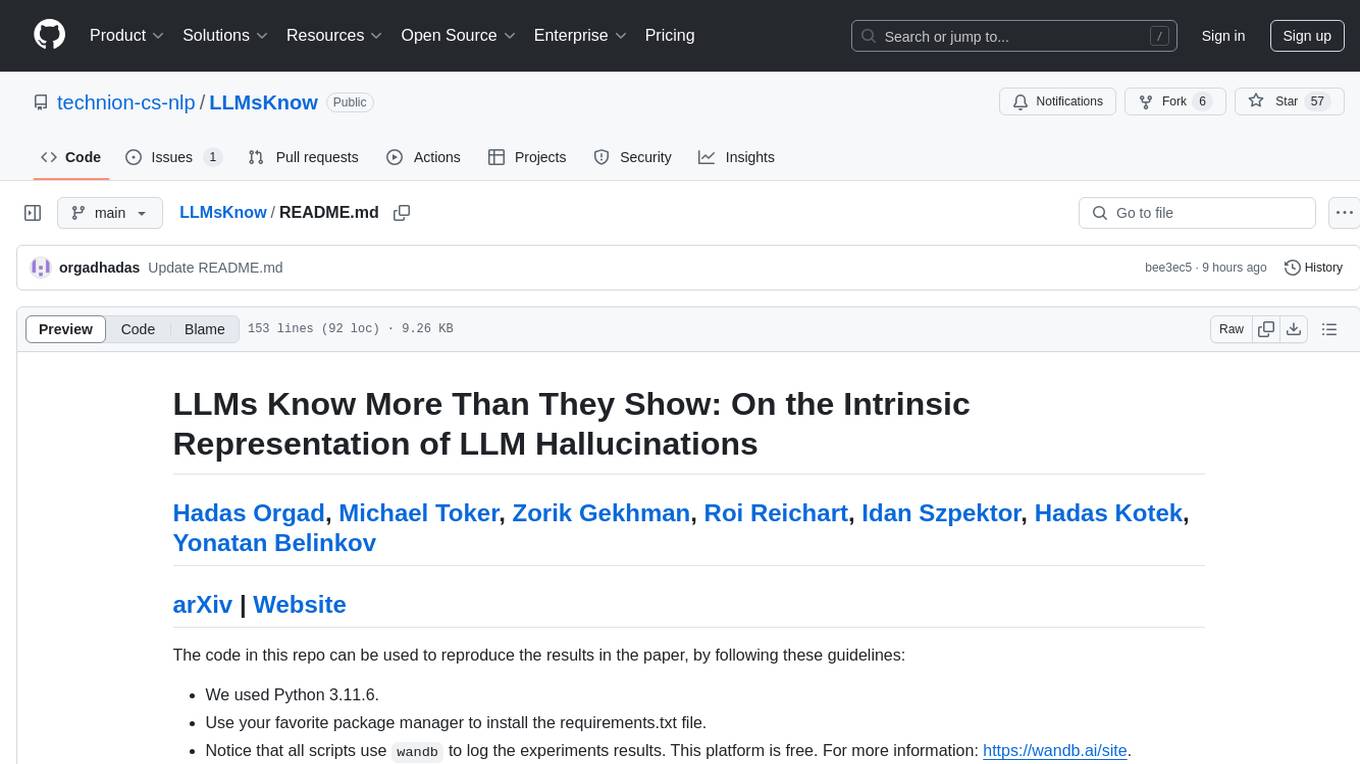
LLMsKnow
LLMs Know More Than They Show is a repository containing code to reproduce the results in the paper. It includes scripts to generate model answers, extract exact answers, probe all layers and tokens, probe specific layers and tokens, conduct generalization experiments, perform resampling for error type probing and answer selection experiments, and run other baselines like logprob detection and p_true detection. The repository supports various datasets such as TriviaQA, Movies, HotpotQA, Winobias, Winogrande, NLI, IMDB, Math, and Natural questions. It also provides supported models like Mistral-7B-Instruct-v0.2, Mistral-7B-v0.3, Meta-Llama-3-8B, and Meta-Llama-3-8B-Instruct.
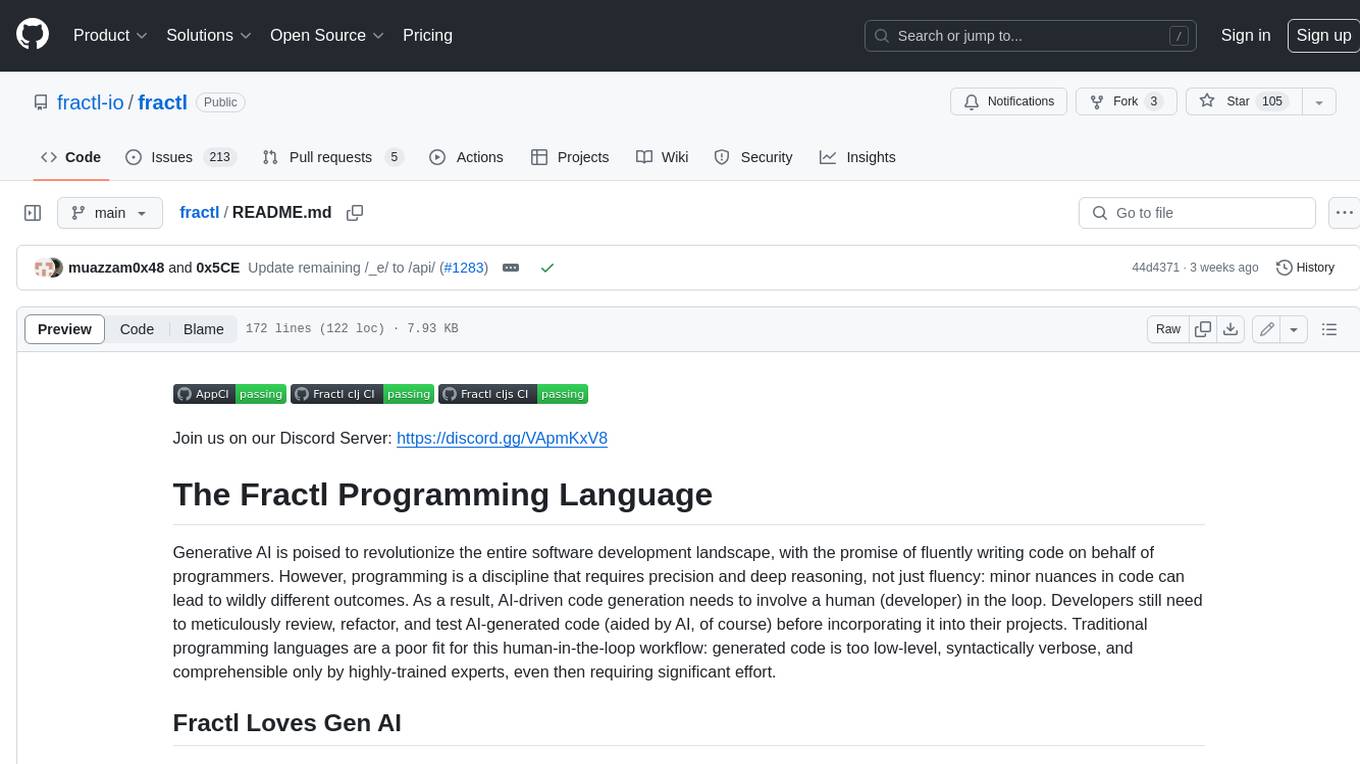
fractl
Fractl is a programming language designed for generative AI, making it easier for developers to work with AI-generated code. It features a data-oriented and declarative syntax, making it a better fit for generative AI-powered code generation. Fractl also bridges the gap between traditional programming and visual building, allowing developers to use multiple ways of building, including traditional coding, visual development, and code generation with generative AI. Key concepts in Fractl include a graph-based hierarchical data model, zero-trust programming, declarative dataflow, resolvers, interceptors, and entity-graph-database mapping.
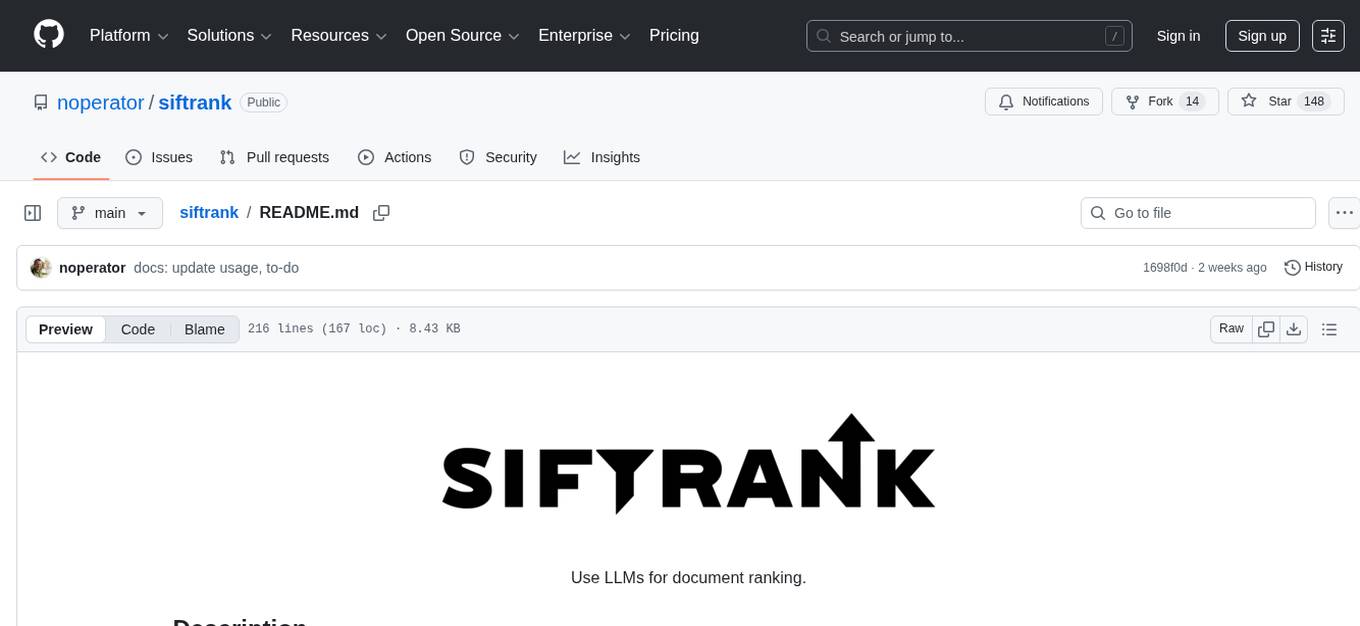
siftrank
siftrank is an implementation of the Sift Rank document ranking algorithm that uses Large Language Models (LLMs) to efficiently find the most relevant items in any dataset based on a given prompt. It addresses issues like non-determinism, limited context, output constraints, and scoring subjectivity encountered when using LLMs directly. siftrank allows users to rank anything without fine-tuning or domain-specific models, running in seconds and costing pennies. It supports JSON input, Go template syntax for customization, and various advanced options for configuration and optimization.
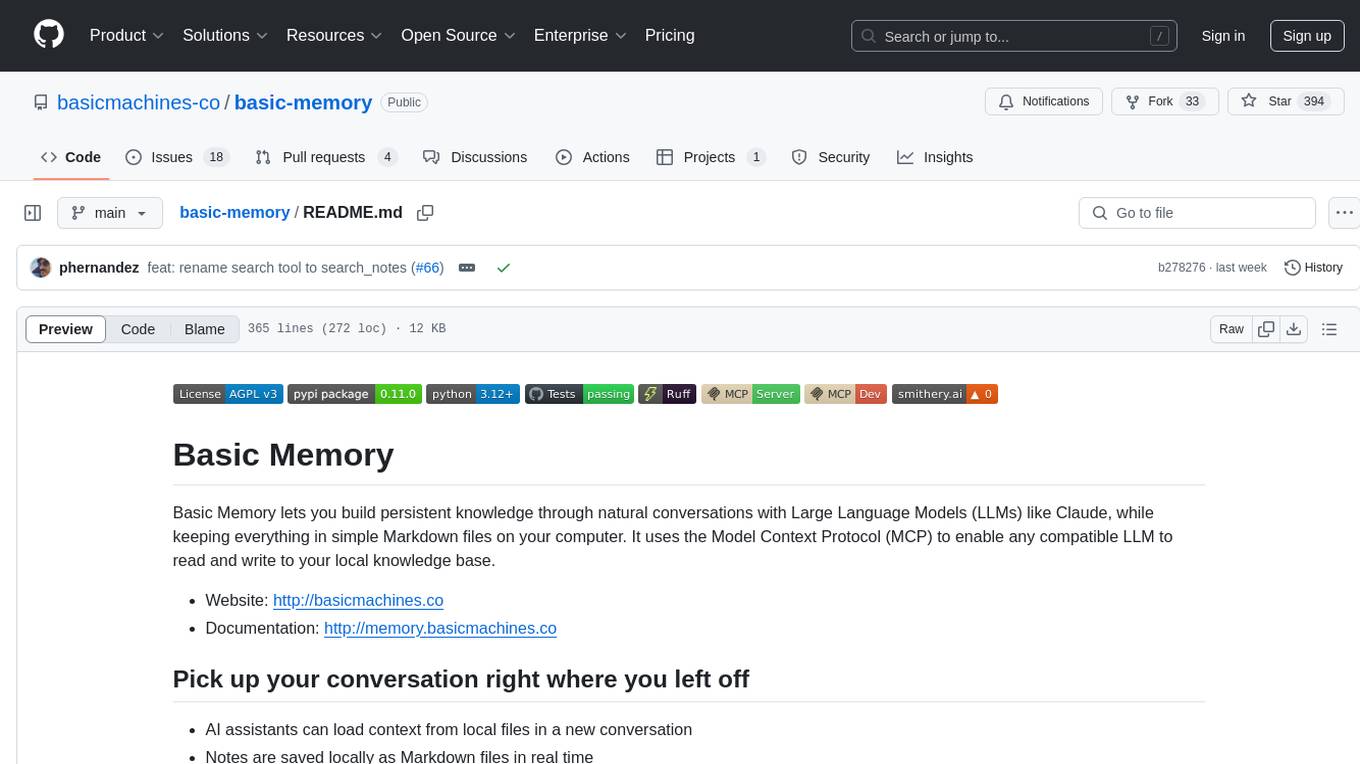
basic-memory
Basic Memory is a tool that enables users to build persistent knowledge through natural conversations with Large Language Models (LLMs) like Claude. It uses the Model Context Protocol (MCP) to allow compatible LLMs to read and write to a local knowledge base stored in simple Markdown files on the user's computer. The tool facilitates creating structured notes during conversations, maintaining a semantic knowledge graph, and keeping all data local and under user control. Basic Memory aims to address the limitations of ephemeral LLM interactions by providing a structured, bi-directional, and locally stored knowledge management solution.
For similar tasks

instructor_ex
Instructor is a tool designed to structure outputs from OpenAI and other OSS LLMs by coaxing them to return JSON that maps to a provided Ecto schema. It allows for defining validation logic to guide LLMs in making corrections, and supports automatic retries. Instructor is primarily used with the OpenAI API but can be extended to work with other platforms. The tool simplifies usage by creating an ecto schema, defining a validation function, and making calls to chat_completion with instructions for the LLM. It also offers features like max_retries to fix validation errors iteratively.
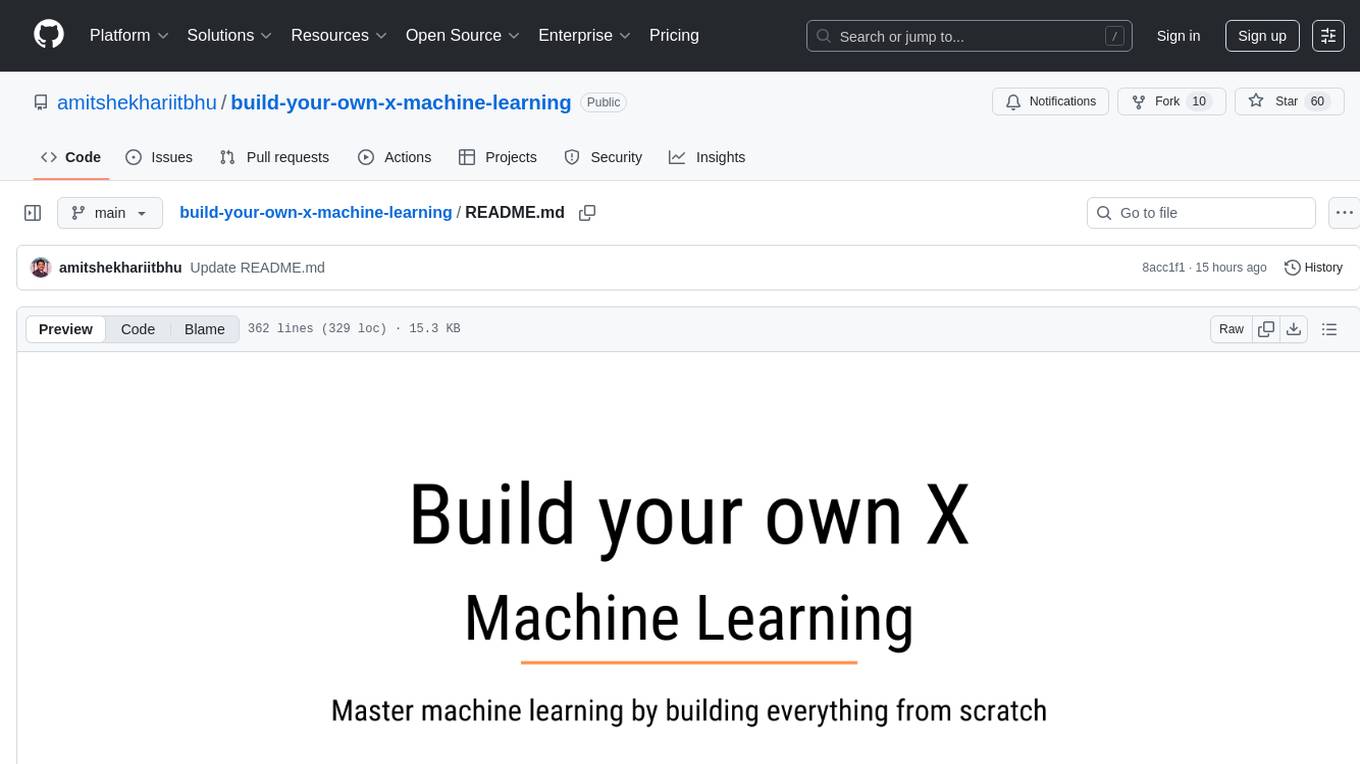
build-your-own-x-machine-learning
This repository provides a step-by-step guide for building your own machine learning models from scratch. It covers various machine learning algorithms and techniques, including linear regression, logistic regression, decision trees, and neural networks. The code examples are written in Python and include detailed explanations to help beginners understand the concepts behind machine learning. By following the tutorials in this repository, you can gain a deeper understanding of how machine learning works and develop your own models for different applications.
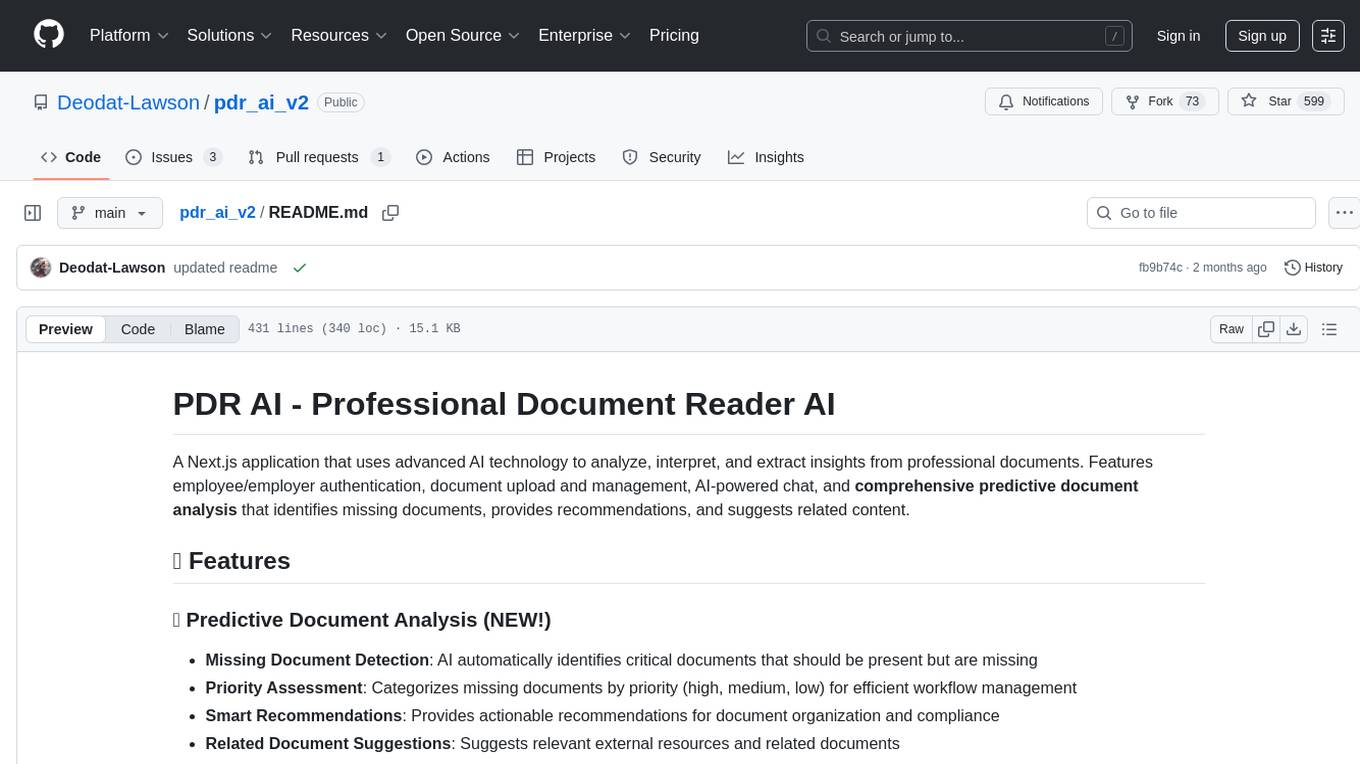
pdr_ai_v2
pdr_ai_v2 is a Python library for implementing machine learning algorithms and models. It provides a wide range of tools and functionalities for data preprocessing, model training, evaluation, and deployment. The library is designed to be user-friendly and efficient, making it suitable for both beginners and experienced data scientists. With pdr_ai_v2, users can easily build and deploy machine learning models for various applications, such as classification, regression, clustering, and more.
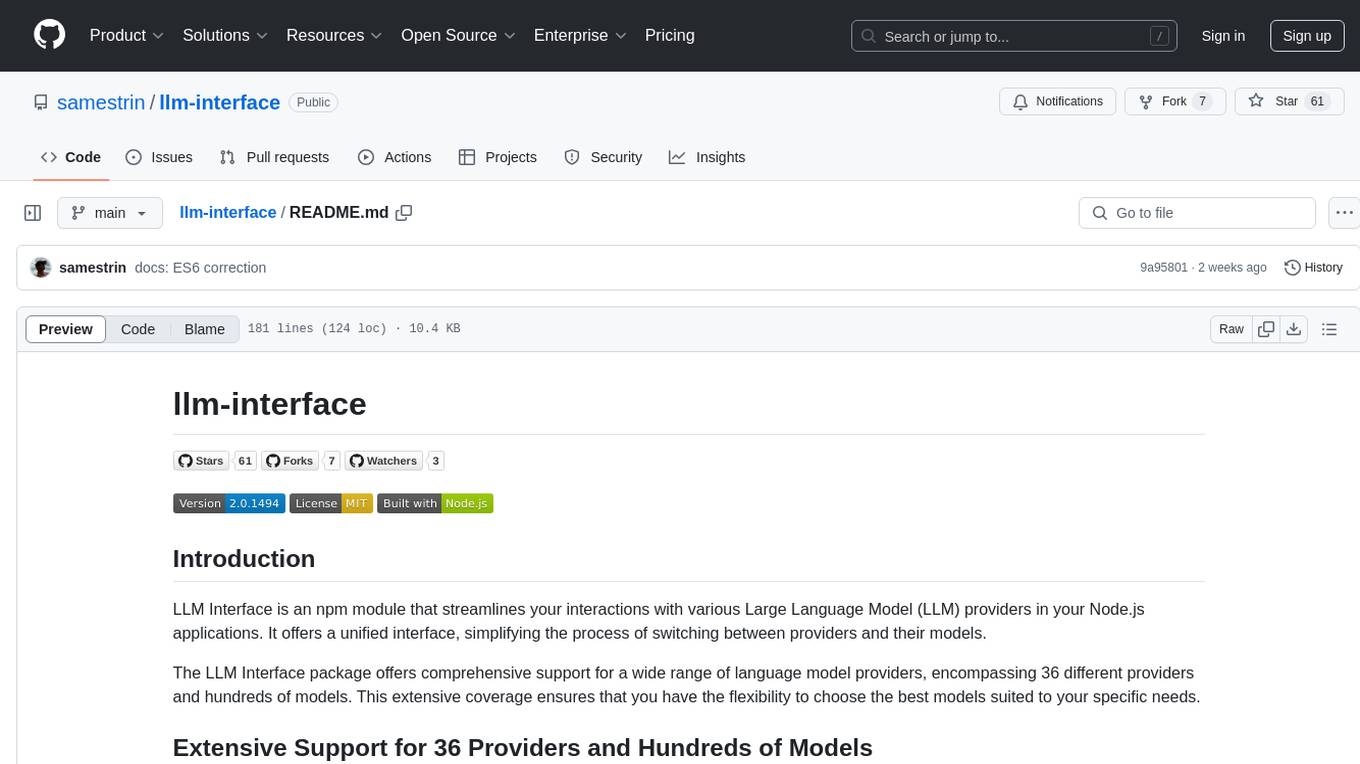
llm-interface
LLM Interface is an npm module that streamlines interactions with various Large Language Model (LLM) providers in Node.js applications. It offers a unified interface for switching between providers and models, supporting 36 providers and hundreds of models. Features include chat completion, streaming, error handling, extensibility, response caching, retries, JSON output, and repair. The package relies on npm packages like axios, @google/generative-ai, dotenv, jsonrepair, and loglevel. Installation is done via npm, and usage involves sending prompts to LLM providers. Tests can be run using npm test. Contributions are welcome under the MIT License.
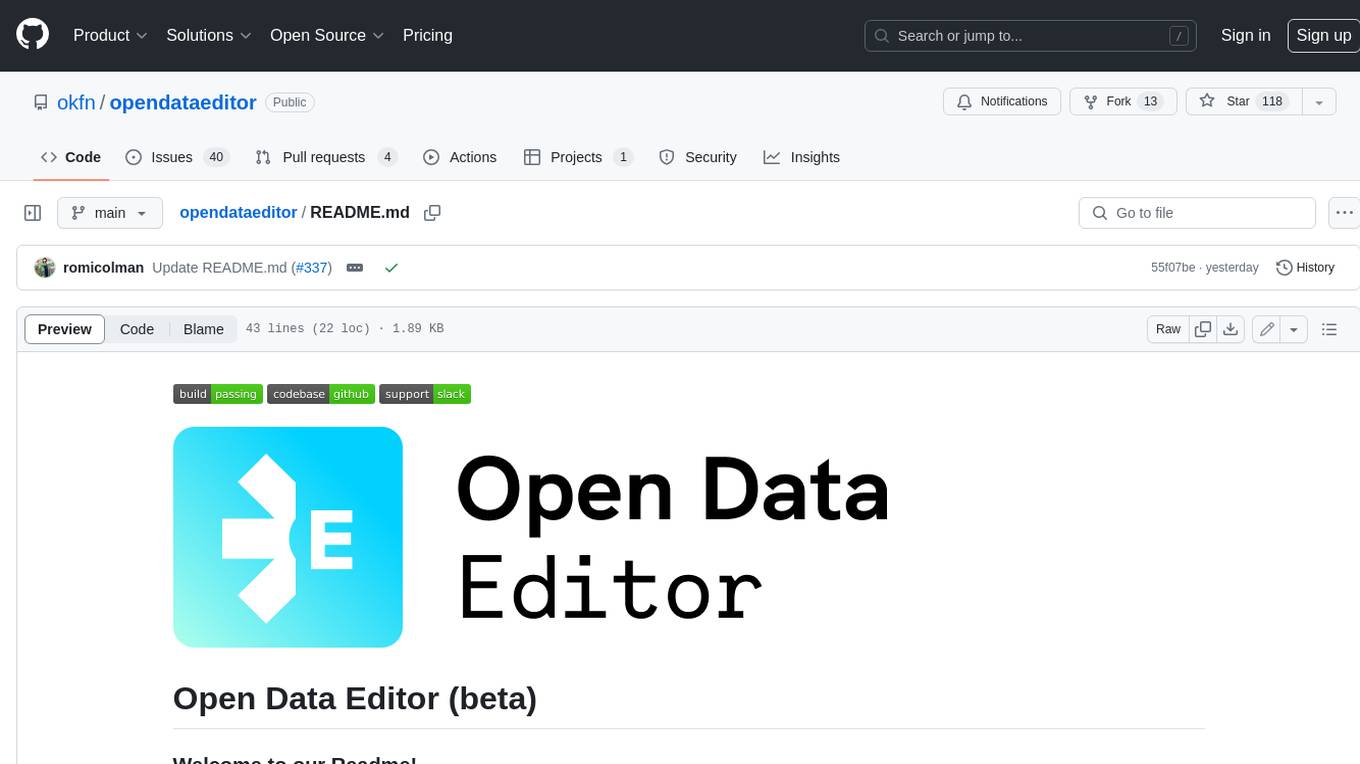
opendataeditor
The Open Data Editor (ODE) is a no-code application to explore, validate and publish data in a simple way. It is an open source project powered by the Frictionless Framework. The ODE is currently available for download and testing in beta.

instructor-js
Instructor is a Typescript library for structured extraction in Typescript, powered by llms, designed for simplicity, transparency, and control. It stands out for its simplicity, transparency, and user-centric design. Whether you're a seasoned developer or just starting out, you'll find Instructor's approach intuitive and steerable.

aiohttp-pydantic
Aiohttp pydantic is an aiohttp view to easily parse and validate requests. You define using function annotations what your methods for handling HTTP verbs expect, and Aiohttp pydantic parses the HTTP request for you, validates the data, and injects the parameters you want. It provides features like query string, request body, URL path, and HTTP headers validation, as well as Open API Specification generation.
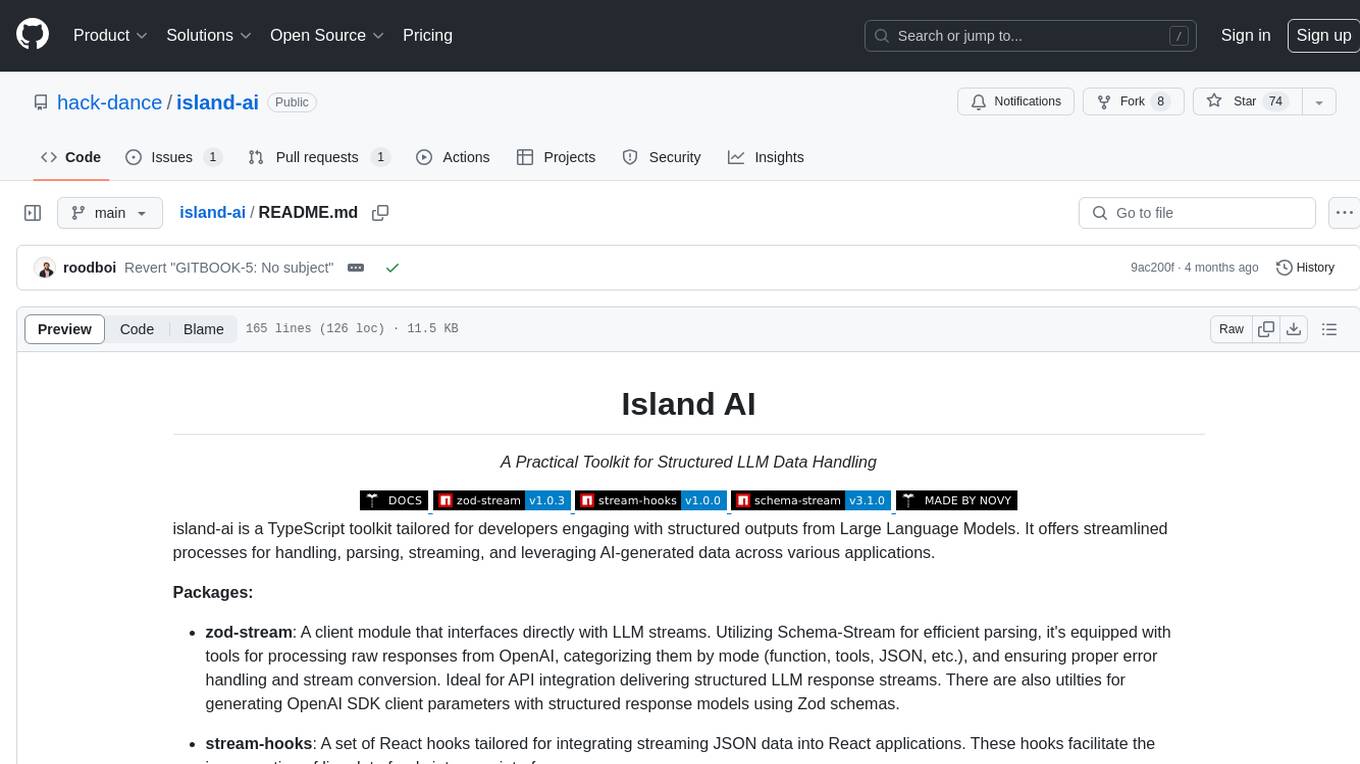
island-ai
island-ai is a TypeScript toolkit tailored for developers engaging with structured outputs from Large Language Models. It offers streamlined processes for handling, parsing, streaming, and leveraging AI-generated data across various applications. The toolkit includes packages like zod-stream for interfacing with LLM streams, stream-hooks for integrating streaming JSON data into React applications, and schema-stream for JSON streaming parsing based on Zod schemas. Additionally, related packages like @instructor-ai/instructor-js focus on data validation and retry mechanisms, enhancing the reliability of data processing workflows.
For similar jobs

weave
Weave is a toolkit for developing Generative AI applications, built by Weights & Biases. With Weave, you can log and debug language model inputs, outputs, and traces; build rigorous, apples-to-apples evaluations for language model use cases; and organize all the information generated across the LLM workflow, from experimentation to evaluations to production. Weave aims to bring rigor, best-practices, and composability to the inherently experimental process of developing Generative AI software, without introducing cognitive overhead.

LLMStack
LLMStack is a no-code platform for building generative AI agents, workflows, and chatbots. It allows users to connect their own data, internal tools, and GPT-powered models without any coding experience. LLMStack can be deployed to the cloud or on-premise and can be accessed via HTTP API or triggered from Slack or Discord.

VisionCraft
The VisionCraft API is a free API for using over 100 different AI models. From images to sound.

kaito
Kaito is an operator that automates the AI/ML inference model deployment in a Kubernetes cluster. It manages large model files using container images, avoids tuning deployment parameters to fit GPU hardware by providing preset configurations, auto-provisions GPU nodes based on model requirements, and hosts large model images in the public Microsoft Container Registry (MCR) if the license allows. Using Kaito, the workflow of onboarding large AI inference models in Kubernetes is largely simplified.

PyRIT
PyRIT is an open access automation framework designed to empower security professionals and ML engineers to red team foundation models and their applications. It automates AI Red Teaming tasks to allow operators to focus on more complicated and time-consuming tasks and can also identify security harms such as misuse (e.g., malware generation, jailbreaking), and privacy harms (e.g., identity theft). The goal is to allow researchers to have a baseline of how well their model and entire inference pipeline is doing against different harm categories and to be able to compare that baseline to future iterations of their model. This allows them to have empirical data on how well their model is doing today, and detect any degradation of performance based on future improvements.

tabby
Tabby is a self-hosted AI coding assistant, offering an open-source and on-premises alternative to GitHub Copilot. It boasts several key features: * Self-contained, with no need for a DBMS or cloud service. * OpenAPI interface, easy to integrate with existing infrastructure (e.g Cloud IDE). * Supports consumer-grade GPUs.

spear
SPEAR (Simulator for Photorealistic Embodied AI Research) is a powerful tool for training embodied agents. It features 300 unique virtual indoor environments with 2,566 unique rooms and 17,234 unique objects that can be manipulated individually. Each environment is designed by a professional artist and features detailed geometry, photorealistic materials, and a unique floor plan and object layout. SPEAR is implemented as Unreal Engine assets and provides an OpenAI Gym interface for interacting with the environments via Python.

Magick
Magick is a groundbreaking visual AIDE (Artificial Intelligence Development Environment) for no-code data pipelines and multimodal agents. Magick can connect to other services and comes with nodes and templates well-suited for intelligent agents, chatbots, complex reasoning systems and realistic characters.





